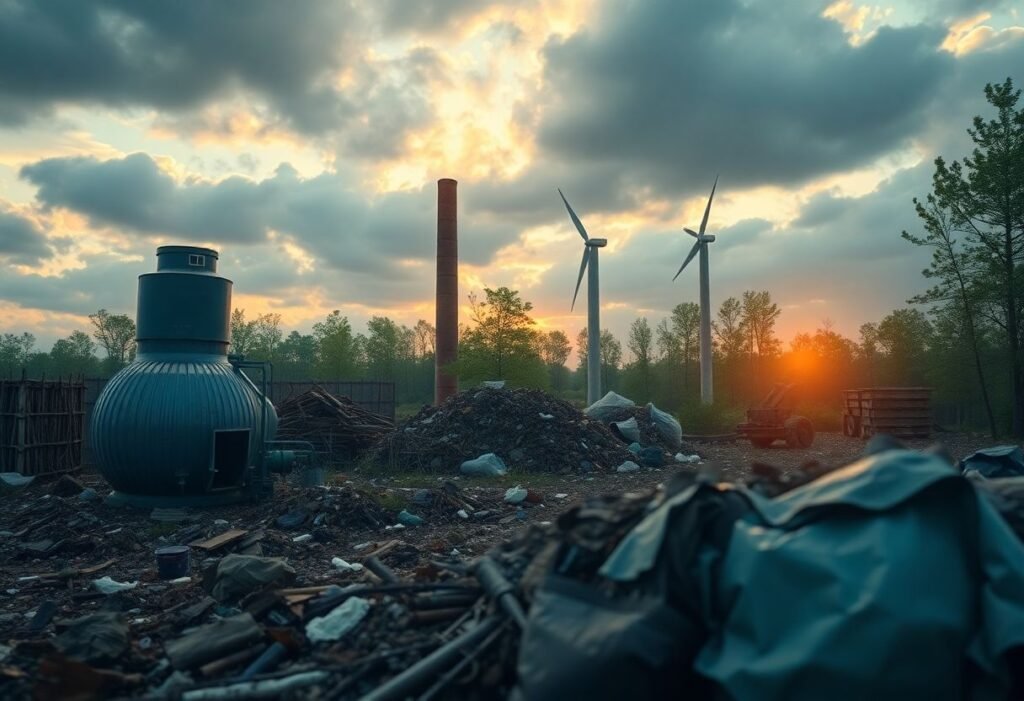Biomass energy is playing a crucial role in revolutionizing waste management, offering innovative solutions that transform how we handle waste. As environmental concerns grow, the shift towards sustainable energy sources has gained momentum, making it vital to explore the effectiveness of biomass energy in converting waste into usable energy.
The Role of Biomass Energy in Waste Management
Biomass energy, derived from organic materials, has become an essential component of modern waste management strategies. By converting **organic waste** into energy, biomass not only helps reduce landfill overflow but also diminishes greenhouse gas emissions. This method recycles waste that would otherwise contribute to pollution, transforming it into a **renewable energy** source. Additionally, using biomass can significantly lower the use of fossil fuels, making it a key player in the fight against climate change. Increasingly, municipalities and companies are adopting biomass solutions to meet their **sustainability goals**, demonstrating how innovative waste management can benefit both the environment and local communities.
Innovations in Biomass Energy Technologies
Technological advancements in **biomass conversion methods** have further enhanced its viability and efficiency. Processes such as anaerobic digestion, gasification, and fermentation have made it easier to extract energy from a diverse range of waste products. These innovations allow for more effective processing and utilization of **biomass energy**, paving the way for increased adoption in urban areas. Furthermore, ongoing research continues to improve the efficiency and cost-effectiveness of these technologies, making biomass an even more appealing option for waste management.
The Environmental Benefits of Biomass Energy
One of the most significant advantages of biomass energy in waste management is its positive impact on the environment. By utilizing agricultural residue, wood waste, and municipal solid waste, biomass energy reduces the volume of waste sent to **landfills**, thus decreasing soil and water contamination. Moreover, it contributes to **carbon neutrality**, as the carbon dioxide released during biomass combustion is offset by the CO2 absorbed by plants during growth. This closed-loop system not only supports a cleaner environment but also promotes biodiversity by reducing the need for landfills that disrupt natural habitats.
Economic Impacts of Biomass Energy Solutions
The implementation of biomass energy solutions has significant economic implications. By investing in biomass facilities, local governments can stimulate job creation within the **green energy sector**. Additionally, biomass projects often rely on local resources, which means money spent on energy remains within the community, boosting the local economy. Furthermore, as the demand for renewable energy sources rises, biomass energy can help increase energy independence, reducing reliance on imported fossil fuels and enhancing overall energy security.
Challenges Facing Biomass Energy Adoption
Despite its numerous benefits, the adoption of biomass energy faces several challenges. Public perception, government policies, and funding constraints can often hinder the growth of biomass technologies. Moreover, the complexity of establishing efficient supply chains for collecting and processing biomass feedstock poses logistical challenges. Addressing these issues through innovative partnerships and regulatory support will be critical in advancing biomass energy as a sustainable solution for waste management.
Future Prospects for Biomass in Waste Management
Looking ahead, the future of biomass energy in waste management appears promising. As technology continues to evolve and environmental pressures mount, more stakeholders will likely embrace biomass solutions. Collaborations between governments, private sectors, and research institutions can drive the innovation needed for biomass to thrive in the energy landscape. By prioritizing investment in biomass technologies, communities can develop more sustainable waste management practices that align with **global renewable energy trends**.
Disclaimer: This content is for informational purposes only and should not be considered as energy policy advice.





















